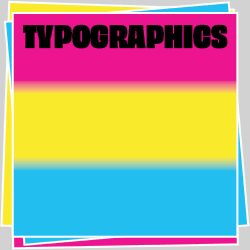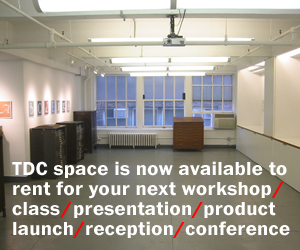Self-Portrait as Your Traitor
Self-Portrait as Your Traitor
by Debbie Millman
How Books, 2013
Approach Debbie Millman’s new book as if you don’t know anything about Debbie Millman. Forget that she helps shape well-known brands, hosts an internet radio show on design, is a popular speaker, heads a graduate program at SVA, and has written several books. This object, written and typographically illustrated by Millman, is artistic, personal, mysterious. She is not writing about branding and the book is not designed in a commercial way. Instead, prepare yourself by going inward. Read Sylvia Plath, drink coffee or something stronger, find that pack of stale menthols hidden in the spice rack and light up. Hopefully it is Saturday night and you’re alone and wondering why.
The thick, black title on the jacket echoes James Joyce’s Portrait of the Artist as a Young Man and the background art resembles a Cy Twombly drawing. The endpapers are covered in overlapping letters that appear to be carved out of sugar cubes. There is a contents page so there are sections of some kind. Skip Paula Scher’s introduction; you’re not in the mood for introductions or filtering (or filters for that matter; damn these menthols).
The first twelve pages are drawings of words in Helvetica, outlines only, overlapping and colored. A red page hits you: “there is so little to be ashamed of.” Perhaps this book is meant to test that proposition? Following the drawn Helvetica section is more of the sugar-cube type, a poem that might be written to a lover because it’s not sweet; maybe the sugar type is ironic. Then, more drawn type, a poem in a typeface you can’t name but think is from the 90s (note: search MyFonts later). Next is a story written in child-like handwriting, a story about a girl who learns to love coffee. A page stands out, about a boyfriend named Oscar, who “was British and Beautiful.” You want to see Oscar and consider googling Oscar-Debbie-Millman but your laptop is across the room so you go on.

Detail from “Post Super Bowl Musings or How I Learned to Stop Worrying and Love Coffee,” in Self-Portrait as Your Traitor.
“LUCKY” is next, about a 12-year-old girl and a man who may be her father. It’s sad and maybe the title of the following section, “INSECTS,” is almost an anagram of the subject of “LUCKY,” so you sincerely hope the scene is fiction. The pages brighten into a story called “penelope,” which reminds you of being young and crazy about design, insecure and vulnerable, and you hope this is nonfiction because it’s touching and true. Next is “No. {53},” a scene about a design office crush. Savoring Millman’s description of the pale skin and green gray eyes of the object of the crush, you’re reminded that you are alone on a Saturday night and take a drag. The penultimate section is surely fiction because it is about dying in bed (which helps explain the textile backgrounds and yarn baselines). The last page is the poem “PEBBLES” and the word pebble reminds you of puddle, a word in the title of the poem drawn in the typeface you couldn’t name. Pebble and puddle are happy words, but this last text is dark, an obsessive interaction between an unknowable “I” and an intimate.
Hidden inside the book jacket, like a tryst’s jotted address, is a surprise, a poem that uses the words “duplicity,” “liars,” “drained,” and “sweat,” scrawled onto strips of shredded paper.
The back flap blurb reminds you of the things you knew about Debbie Millman but tried to forget, and adds that she owns “several copies of Ulysses full of marginalia.” Is more going on here than you first thought? You suspect Joycean depths, clues woven into the layers of photographed words, which have to be “read” as text but also as images. Strategies for understanding pass through your mind: you should google the words pebble and Ulysses, or finally read Ulysses, maybe go to grad school in literature or fine art, which you always wanted to do anyway, screw design.
Book shut, you are amused and impressed, happy this traitor is challenging. Brushing your teeth, you imagine studying British novels with Oscar.





